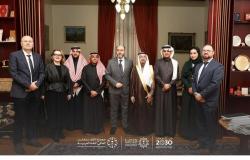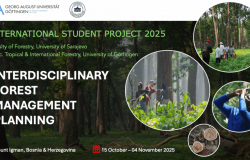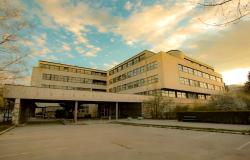Consultations on the policies and strategies on media and information literacy in Bosnia and Herzegovina

The University of Sarajevo, through the cooperation of the Faculty of Political Science and the Department of Library Science of the Faculty of Philosophy, with the Ministry of Civil Affairs of Bosnia and Herzegovina and the State Commission for Cooperation of Bosnia and Herzegovina with UNESCO, organized on Monday, 23 April 2018, the Consultations on Policies and Media and information literacy strategies in Bosnia and Herzegovina.
The aim of the consultation is to encourage cross-sectorial debate on media and information literacy in Bosnia and Herzegovina in order to initiate the strategy and policies articulation process on the integration of media and information literacy, and adequate inclusion in the system of formal and non-formal education. The Consultations provided numerous stakeholders from relevant sectors who are looking for new, creative and sustainable measures to improve media and information literacy. Participants' comments and suggestions will be included in the final version of the study on media and information literacy in Bosnia and Herzegovina, including recommendations for the improvement and development of policies and strategies for media and information literacy.
The consultations were opened with the introductory presentation by the project leader Doz. Dr. Emir Vajzović, head of the Institute for Social Research at the Faculty of Political Sciences of the University of Sarajevo. Welcome lectures were delivered by Prof. Dr. Rifat Škrijelj, University of Sarajevo Rector, Dr. Sc. Amira Redžić, BiH Ministry of Civil Affairs, Mr. Siniša Šešuma, representative of the UNESCO Office in BiH, and Ms. Željka Šulc, OSCE BiH.
Such public policies provide a framework for finding adequate responses to all the more current problems of spreading various forms of fake and distorted news and information on the Internet. Policies of media and information literacy can contribute to empowering an increasing number of citizens to discuss and manage public debates on relevant issues. This makes the opportunity for meaningful dialogue among citizens of different ethnic, religious, ideological and political groups. There is no doubt that in the future, Bosnia and Herzegovina will have to put greater emphasis on media and information literacy through its commitment to European integrations, especially through Chapter 10 of the EU Legal Courses - Information Society and Media.
Welcome address by UNSA Rector, Prof. Škrijelj emphasized the significance of this event, and University of Sarajevo’s commitment to a multidisciplinary approach to the integration of scientific and research work and education, and the construction of critical thinking. That is only possible if we offer our students the tools for evaluating the information and documents they use in their everyday work and thus ensure the supreme quality of our work.
Dr. Sci. Amira Redžić spoke on behalf of the BiH Ministry of Civil Affairs and the State Commission for Cooperation of Bosnia and Herzegovina with UNESCO. She stated that the intention and commitment of Bosnia and Herzegovina is to continue implementing all UNESCO conventions, as required and when in the regard with the general European and international acts and regulations in the field that deals with today's topic, as well as the strategies for promoting a knowledge society.
Recalling that the rapid development of information technologies led to the transformation of traditional media, and in particular the way of creating and disseminating content, Mr. Siniša Šešuma, a representative of the UNESCO office in BiH, pointed out that for this reason, UNESCO proposed in 2007 the media information literacy as a new, complex concept.
Basic recommendations from the consultations are aimed at harmonizing public policy and developing new policies and strategies where necessary. It is important to develop the concept of media and information literacy that will be adapted to formal and non-formal education, and to understand the importance of empowering interdisciplinary academic programs, but also in the context of lifelong learning, in order to build an environment for the continuous development of the necessary skills for active citizenship and employment. It will be necessary to strengthen the roles of libraries and information institutions, and other key actors in the lifelong learning process, in particular learning with the support of new media and technologies, as well as transferring knowledge of media and literacy to widespread user communities.
This activity is organized as part of the project “Building confidence in the media in South East Europe and Turkey” funded by EU-UNESCO.



















